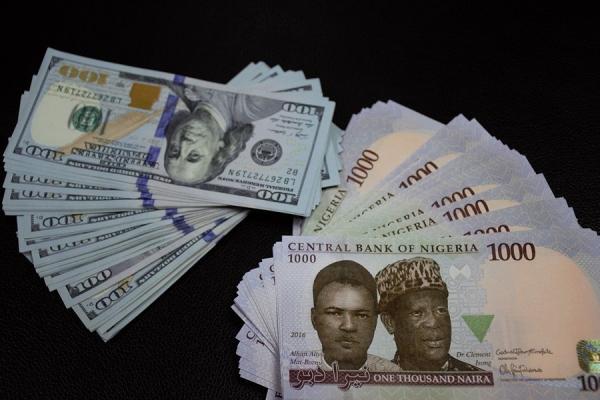By Becky Usman
The Nigerian naira continued its alarming descent on Tuesday as it traded against the U.S. dollar at a rate ranging from 1,005/$ to 1,025/$ in the parallel market.
Small-scale business owners, the Nigeria Employers’ Consultative Association, and manufacturers have expressed deep concerns about the deteriorating value of the naira, warning that this could lead to the closure of factories and a surge in job losses.
The naira’s decline has been ongoing since the Central Bank of Nigeria initiated a free float policy for the national currency against the dollar and other global currencies back in June.
The repercussions of this decline are becoming increasingly visible, with manufacturers struggling to secure raw materials, while more companies are considering laying off employees or shutting down operations.
As the value of the naira diminishes, manufacturers are grappling with the need to scale back production, reduce jobs, and limit their imports of raw materials.
Naira Hits 1,025/$
Bureau de Change operators reported that the naira was trading between 1,005/$ and 1,025/$ in the parallel market on Tuesday.
Yusuf Kareem, a BDC operator in Lagos, remarked, “We bought at N1,005/$ and sold at 1,025/$ on Tuesday. Money is still scarce, and the naira’s value keeps falling.”
Musa Yunus, another BDC operator, noted, “Two weeks ago, the naira was traded at 980/$, but today, it is 1,020/$. We can’t predict what will happen tomorrow as the rates remain high.”
Idris, a BDC operator, expressed, “I am not sure you can buy more than $1,000 from me now because it’s scarce. We purchase at a rate of 1,000/$, but I sell at 1,015/$.”
Babangida, another BDC operator in Lagos, mentioned, “I sell for N1,010 per $ and buy at the rate of N1,000/$.”
The Impact and Concerns
The depreciation of the naira is expected to lead to an increase in imported inflation, resulting in higher prices for imported goods. However, it could also boost export income in naira for those engaged in international trade.
Adewale Oyerinde, the Director-General of Nigeria Employers’ Consultative Association, stressed that the central issue is how the government will address the foreign exchange challenges. He added, “The escalating forex issue is hindering progress, and until it is resolved, our endeavors cannot take flight.”
Dr. Ikenna Nwaosu from the Nigeria Economic Summit Group warned that many companies could shut down due to the ongoing crisis, leading to unemployment and various economic ramifications.
Nwaosu explained that the rise in the dollar exchange rate is likely to trigger increases in fuel prices, import duties, and food prices, which could impact minimum wage negotiations.
The Association of Nigerian Licensed Customs Agents chimed in, saying that the situation has paralyzed the freight forwarding sector and could lead to cargo abandonment if it persists.
Government and Regulatory Actions
In response to the crisis, the House of Representatives has directed the Committee on Banking Regulation to investigate the use of the dollar and other foreign currencies for domestic transactions in Nigeria. They also called for the Central Bank of Nigeria to implement monetary policy adjustments to stabilize the currency, address speculative activities in the forex market, and increase the naira’s withdrawal limit.
Additionally, the government was urged to promote policies and structural reforms to reduce corruption and enhance economic diversification within the country.
The naira’s depreciation is causing serious concern, not only for businesses but also for the overall economic stability of Nigeria. It underscores the need for immediate and effective measures to address the crisis and safeguard the nation’s financial well-being.

